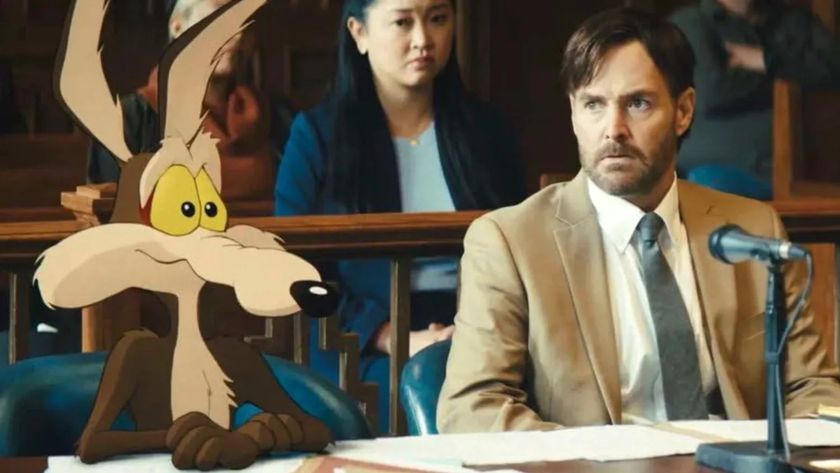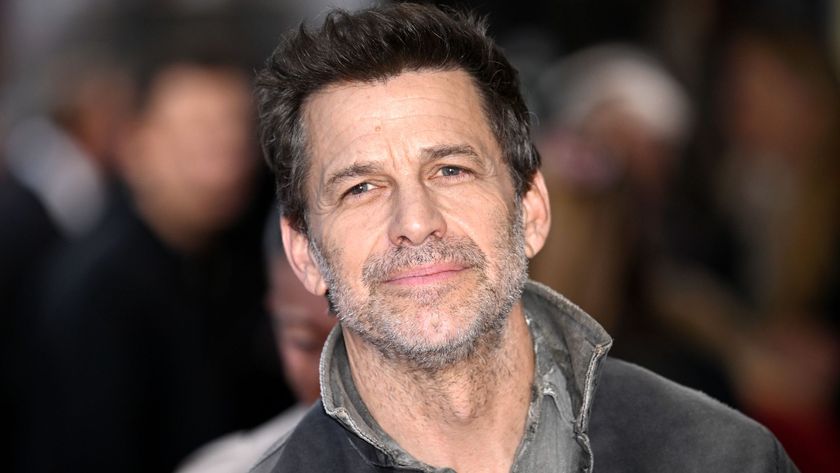Amy reaction: Cannes 2015
Asif Kapadia’s deeply affecting Amy Winehouse documentary delves beyond the tabloid headlines. Here’s Jamie Graham’s reaction…
Far from being another long-lensed ogle at the supernova that was Amy Winehouse, Asif Kapadia’s (Senna) heart-breaking documentary is a startlingly intimate affair, gaining access to friends, lovers and family – and their treasure trove of photos and videos – to caress the soul of an extraordinary artist, a vivacious young woman.
Footage of Amy in her early teens reveals an already magnetic presence, shy yet quick to perform for the camera, her signature eye makeup in place and her overspilling affection laced with drops of hostility. The desertion of her father, Mitch, has left a ragged wound in the blunt-talking North London Jewish girl; she’s funny, quick to laugh; jazz is one of her great loves but a career in music has not been considered – this despite her impromptu crooning of ‘Happy Birthday’ at a friend’s celebration uncorking that whiskey-thick, wisdom-rich voice.
Tracking Amy through her first performances (driving gig to gig with childhood pal-turned-manager Nick Shymansky) to debut album Frank and then on to the stratospheric success of Back To Black and her much-publicised decline, Kapadia and ace editor Chris King eschew talking heads in favour of vocal recordings, concert footage, home video, news footage, magazine covers and peeks into notebooks containing handwritten lyrics. Scenes of Winehouse performing have said lyrics written out on screen, inviting viewers to see the words within those smoky vocals. The effect is shocking: Winehouse’s demons writhe nakedly in all of her songs, pointing to fault lines imposed by events we’ve earlier witnessed, or prefiguring tragedies to come. 'Rehab' lyric “I ain’t got the time and if my daddy thinks I’m fine” causes an intake of breath when we learn that Amy's father advised her against seeking professional help between Frank and Back To Black, when her drinking was spiralling.

Winehouse’s closest friends, family, business colleagues and husband, Blake Fielder-Civil (whom many consider introduced Amy to hard drugs) all have their say, and Kapadia allows their accounts to play without imposing editorial judgement. Each viewer will arrive at his or her own valuation, no doubt. What is inarguable, however, is that there were times, and many of them, when a different path might have been taken. Certainly the tabloid-presented persona of Winehouse as a defiant, kamikaze wild child is shown to be fraudulent: here was a woman whose hurt ran deep, who was ill-equipped for fame and who was open to healing. As singer Tony Bennett says, “Life teaches you to live it, if you can live long enough.” (A touching scene shows Winehouse, aged 26, recording a track with Bennett; nervous to be sharing a mic with one of her idols, she repeatedly asks to do it again, distraught that she’s messing up.)
Kapadia makes the decision to conclude his film soon after Amy’s death, aged 27. The years of alcohol, heroin, crack cocaine and bulimia have taken their toll, and the filmmaker feels no need to measure the repercussions, trace the legacy: Amy has already succeeded in commemorating its subject's spirit and talent, with the tragedy of her loss once more feeling fresh and overwhelming.
In partnership with Microsoft, powered by the HP Spectre 360
Sign up for the Total Film Newsletter
Bringing all the latest movie news, features, and reviews to your inbox
The Total Film team are made up of the finest minds in all of film journalism. They are: Editor Jane Crowther, Deputy Editor Matt Maytum, Reviews Ed Matthew Leyland, News Editor Jordan Farley, and Online Editor Emily Murray. Expect exclusive news, reviews, features, and more from the team behind the smarter movie magazine.













